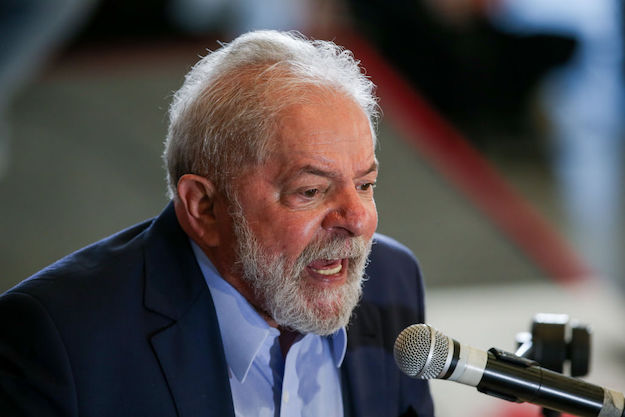BRASILIA, (Reuters) – The shooting over the weekend of an official in Brazil’s leftist Workers’ Party (PT) by a supporter of right-wing President Jair Bolsonaro has inflamed fears of more political violence ahead of a heated election in October.
The local party official’s death was the most dramatic case this year of a rising tide of political violence in the world’s fourth-largest democracy, tracked by the Electoral Investigation Group (GIEL) at the Federal University of Rio de Janeiro.
“The increase in violence has a lot to do with the current political climate,” said GIEL coordinator Felipe Borba. “Not because it’s polarized, elections have always been polarized … But because polarization is being fed by a discourse of hatred.”
Critics of Bolsonaro say the president has stoked the tense climate with his strident rhetoric, urging supporters to arm themselves to defend their freedom and saying the election’s only outcomes for him will be “death or victory.”
Bolsonaro, who was nearly stabbed to death during a campaign rally in 2018, has said he has refused any violent supporters and complained he was unfairly blamed for shooting in southern Brazil on Saturday.
The presidential press office did not respond to a request for comment.
Even before the killing of his PT compatriot, former President Luiz Inacio Lula da Silva, who leads opinion polls in the presidential race, was stepping up precautions.
To keep him safe on the campaign trail, Lula’s campaign hired a military general who previously oversaw his presidential security detail, according to a source close to the candidate, who requested anonymity to discuss confidential matters.
His campaign did not respond to a request for comment.
Just last week, Lula appeared at a major outdoor rally in Rio in a bulletproof vest – an increasingly common sight this year with little precedent from his prior campaigns or his time in office from 2003 to 2010.
Attacks on his campaign so far this year have been nasty but non-lethal. Supporters at a rally last month complained of a crop-dusting drone spraying urine from overhead. Last week, cops arrested a man accused of throwing a plastic bottle with feces that exploded at a campaign event.
Lula warned colleagues at a Monday campaign meeting that election-related violence would only intensify in coming months, according to General Laborers Union leader Ricardo Patah, who was in attendance.
Bolsonaro’s supporters argue he isn’t the only one turning up the heat heading into October.
On Sunday, Lula raised eyebrows for thanking a former Sao Paulo city councilman that pushed an anti-PT businessman in front of a truck during a protest in 2018. The councilman was indicted for attempted homicide and the businessman suffered from severe health problems until dying from COVID-19 in 2021.
GIEL researchers catalogued 101 acts of political violence from April to June, up 18% from the same period of the last election year, 2020 – including 24 homicides.
Historically, Brazil’s electoral violence has been dominated by “pistoleiros,” or hitmen, settling scores between rival state and municipal powerbrokers.
But the shooting this weekend of local PT treasurer Marcelo Arruda at his Lula-themed 50th birthday in the southern state of Parana has none of the hallmarks of old school “pistolagem.”
The alleged killer, a prison officer named Jorge José da Rocha Guaranho, had no known history with the victim before barging into the birthday shouting support for Bolsonaro.
His Twitter account reveals a man consumed with hatred for Lula and a passion for Bolsonaro.
“Conservative,” his profile reads. “Christian, Bolsonaro for President, Guns = Defense.”









